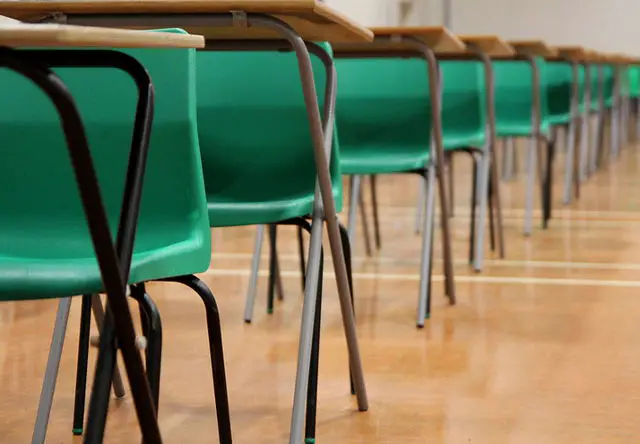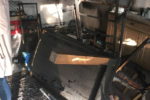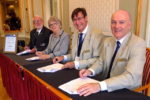This in from the council, Ed
Significant changes to Key Stage 2 tests for 11 year olds are reflected in the results for the Isle of Wight pupils, according to provisional data from the new primary school testing system published on 5 July.
The results show that the government’s benchmark of performance, known as the ‘National Standard’, has been significantly raised this year. The Secretary of State for Education herself has said of the tests that ‘the bar has been raised’. This means that fewer children on the Isle of Wight, and around the country, have met the National Standard.
Iain Bell, head of profession for statistics at the Department for Education reports nationally,
“53 per cent of pupils achieved the new expected standard in 2016 when being taught and assessed against the higher expectations of the new curriculum. Under the previous system, 80 per cent of pupils achieved the national benchmark that was expected under that system.”
For the first time since tests for 11 year olds were introduced, the Island has matched the national average for writing, with 74 per cent achieving the required standard.
The results for individual subjects are as follows:
- Writing: 74 per cent on the Isle of Wight, 74 per cent nationally
- Reading: 63 per cent on the Isle of Wight, 66 per cent nationally
- Maths: 62 per cent on the Isle of Wight, 70 per cent nationally
- Grammar, spelling and punctuation: 64% per cent on the Isle of Wight, 72 per cent nationally
Against the new standards, 48 per cent of Isle of Wight pupils reached the national standard in reading, writing and mathematics compared to 53 per cent nationally.
Leader of the Isle of Wight Council, Councillor Jonathan Bacon, said:
“Schools on the Island are making steady progress in improving educational standards and I would urge parents and pupils to remember that the drop in numbers meeting the national standard does not reflect a drop in performance and effort, but a raising of the bar. Many schools have been inspected by Ofsted this year and the pattern of inspections show a continuing improvement in the quality of education being provided in the Island’s schools.
“The government’s education secretary, Nicky Morgan, has acknowledged that schools are making a transition to a more rigorous system, and that she expects the numbers of children attaining the national standard to reflect this difficult change. However I can appreciate that this difference in results will be hard to accept for those pupils and teachers who have worked hard to drive up standards.
“These tests assess against a new National Curriculum which has much harder content and isn’t bedded in yet. The way that the changes have been made has been very disruptive and children were not given the normal amount of time to study for the tests.
“This could mean that, despite their hard work, some children will not reach the standards that they were expecting. Parents should not see this as any fault on the part of either their child or their child’s teacher: rather, it is the outcome of changes to the curriculum and tests.
“I am pleased to see that writing standards have matched the national average and that reading is very close. I am confident that as the new curriculum beds in that we will see rises in the numbers of children meeting the harder expectations.
“We will continue to work closely with schools across the Island to provide the support required to adapt to the new curriculum will support the many schools who are currently appealing their pupils’ results.”
Far more rigorous curriculum
This year’s results are the first to be released following the introduction of a far more rigorous curriculum in 2014 that raises expectations of pupils’ literacy and numeracy.
The results are completely incomparable to last year’s as the testing system has changed so significantly. Rather than being graded at a level 3 or level 4, pupils are now awarded a scaled score. Pupils must achieve a score of 100 in order to reach the required standard. If they achieve a score of 99, they will be classed as not meeting the required national standard. The Isle of Wight average score was 102, with the national average 103.
In previous years under the old system, a ‘best fit’ model was in use. This meant that if a pupil had a few gaps in their knowledge of the curriculum but showed a good general understanding of the subject then they would pass the assessment as being level 4. The new system does not allow for this discretion.
Additional information
The council also provided this additional information.
The results are completely incomparable to last year’s as the testing system has changed so significantly. Rather than being graded at a level 3 or level 4, pupils are now awarded a scaled score. Pupils must achieve a score of 100 in order to reach the required standard. If they achieve a score of 99, they will be classed as not meeting the required national standard. The Isle of Wight average score was 102, with the national average 103.
In previous years under the old system, a ‘best fit’ model was in use. This meant that if a pupil had a few gaps in their knowledge of the curriculum but showed a good general understanding of the subject then they would pass the assessment as being level 4. The new system does not allow for this discretion.
Image: comedynose under CC BY 2.0





